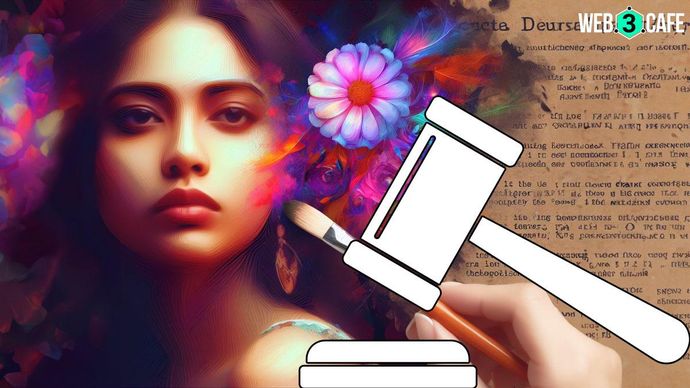Legal setback: US judge rules against artists in AI art copyright battle
As the debate over AI-generated art and copyright continues, this ruling underscores the necessity for artists to navigate the complexities of intellectual property laws in the digital age.

Highlights
- A US judge dismisses artists' lawsuit on AI-generated art
- He cited lack of evidence and stating that the suit was defective in numerous respects
In a significant ruling, a United States judge has delivered a blow to artists involved in a class-action lawsuit against generative artificial intelligence (AI) firms, including Midjourney, DeviantArt, and Stability AI. The lawsuit accused the companies of copyright infringement related to AI-generated art.
Lawsuit dismissed with caveats
California District Court Judge William Orrick dismissed the artists' class-action lawsuit, citing a lack of evidence and stating that the suit was 'defective in numerous respects.' However, he allowed a copyright infringement claim from one class action member against Stability AI to proceed.
Judge Orrick granted the class 30 days to attempt to submit an amended suit with additional proof, emphasising the need for substantial evidence to support the artists' claims.
Challenges in proving copyright infringement
The judge's ruling highlighted the complexity of proving copyright infringement concerning AI-generated art. Orrick stated that AI-generated images likely do not infringe on artists' copyrights unless it can be demonstrated that the generated images are similar to the artists' work.
He also noted that copyright claims from some class members were dismissed due to the absence of registration with the Copyright Office, a prerequisite for filing a copyright infringement suit.
Broader implications in AI copyright battles
This case is part of a larger legal landscape involving copyright battles against AI firms. Similar actions have been taken against companies like OpenAI, Anthropic, and Stability AI in both the United States and the United Kingdom.
The ruling emphasises the challenges in determining copyright infringement in the realm of AI-generated art and sets a precedent for future legal proceedings in this rapidly evolving field.
